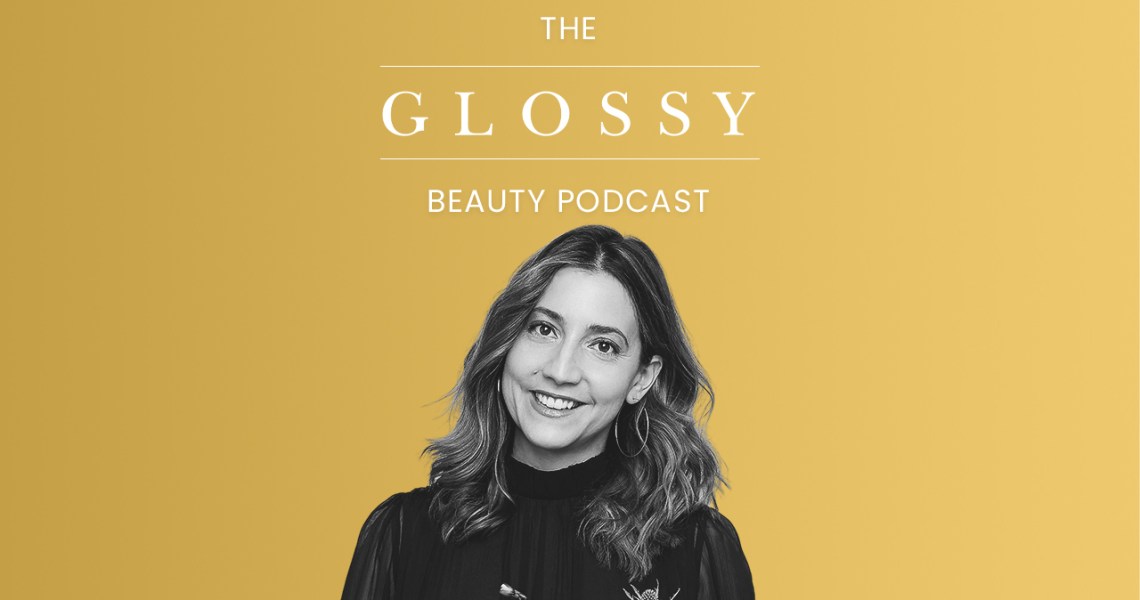Subscribe: Apple Podcasts | Stitcher | Google Play | Spotify
Alpyn Beauty founder and CEO Kendra Kolb Butler had plans to leave the beauty industry in 2015. She moved from New York City to Jackson Hole, Wyoming, following long-term stints in marketing and public relations at Dr. Dennis Gross and Clarins. But, after living in her new hometown for a week, she “missed talking to women about their skin and their problems,” she said on this week’s episode of the Glossy Beauty Podcast.
Kolb Butler quickly set up a beauty shop, Alpyn Beauty Bar, to cater to locals’ skin-care needs, but customers kept coming in saying they needed different solutions for dryness and hyperpigementation caused by the Jackson Hole climate. “I started to notice a trend that they would come back in with the product they purchased, and they would say, ‘What else do you have in the store? This isn’t working,'” she said. “I didn’t really know what to do. I was selling the best brands in skin care and the best cosmetic lines, and I didn’t have anything else to offer. I was sitting in my backyard one summer, and I was looking at the National Forest. I’m pondering, ‘I’m going to go out of business in these stores,’ and as I’m thinking about this, I’m looking at the plants that are growing in the wild. They are so plump, juicy, hydrated and full of nutrients. And I’m thinking, ‘What is growing here?'”
Those wildcrafted plants sparked the idea for Kolb Butler’s skin-care brand Alpyn Beauty, one of the fastest-growing new beauty brands. Sales of the 2-year-old company, which is sold at Sephora, QVC and Credo, have grown 115% in the last year. And though plenty of private equity and VC firms have taken notice of the company, Kolb Butler is taking her time, in order to strive for long-term, global growth.
Ahead are a few highlights from the conversation, which have been lightly edited for clarity.
Inspired by her surroundings
“I spent a lot of time in stores, initially, consulting with the clients. I quickly realized that women in this new community that I lived in were suffering from some pretty accelerated aging patterns, which was in part due to the climate we live in — lots of hyperpigmentation and dark spots, and everybody’s outside all the time. Everyone’s skin was just dry. I started to notice a trend that they would come back in with the product they purchased, and they would say, ‘What else do you have in the store? This isn’t working,’ I didn’t really know what to do. I was selling the best brands in skin care and the best cosmetic lines, and I didn’t have anything else to offer. I was sitting in my backyard one summer, and I was looking at the National Forest. I’m pondering, ‘I’m going to go out of business in these stores,’ and as I’m thinking about this, I’m looking at the plants that are growing in the wild. They are so plump, juicy, hydrated and full of nutrients. And I’m thinking, ‘What is growing here?’ Nature found a way to adapt to this climate that is wreaking havoc on this community’s skin. How can I put these two things together?”
Growth in a pandemic year
“We managed to grow our business by 115%, which I’m pretty proud of. It’s not easy to do. I think that Covid has forced a lot of us to focus on health care and self-care, and skin care is health care, in my opinion. [We’re] not the only skin-care company that most likely saw a surge during Covid. The customer is at home, she’s on Zoom calls all day, she’s looking at herself. When have we ever just sat and looked at ourselves talk all day long, literally looking in a mirror from sunup to sundown? You want to feel good about the way you look, but [our growth] is not just Covid-related. I think it’s secular growth, in general. The consumer is interested in nature and sustainability, and finding medicine that works for her skin from a company that also aligns with her beliefs and values.”
Funding will fuel becoming a global brand
“We have taken on funding; my business partner and I [have gotten funding from] angel investors up until this point. We are trying to scale a global, multi-category brand, and you need funding to do that. As we continue to scale and grow, what that looks like I’m not sure. But we do recognize the importance of being well-funded, because that’s how you engage. You have to invest in business to grow, so that’s something that’s been a big focus for us.”




